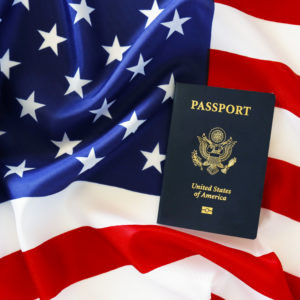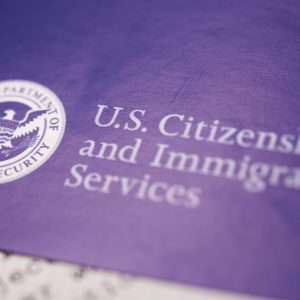Other Immigration Cases
Other Immigration Cases
Immigration law encompasses an enormous range of case types, forms and services. Apart from the removal defense in immigration court, asylum, family based immigration, relief for the victims of crimes and U.S. citizenship, below you will find other common services our office offers.
- Green card renewals and replacements (Form I-90)
- If your green card is expired or soon-to-expire or if it has been lost, stolen, damages, or destroyed, then you can file the application to renew or replace your green card.
- B-1/B-2 Visitor Visas
- Visitor visas allows you to enter the United States temporarily for business (B-1 “Business Visa”) or for pleasure, tourism or medical treatment (B-2 “Tourism Visa”)
- F-1 Student Visas
- F-1 Student visa allows you to enter the U.S. as a full-time student at an accredited college, university, seminary, academic high school, elementary school, or other academic institution or in a language training program.
- Extension or Change of Status (Form I-539)
- Change and Extension of Status apply only to people who are located in the U.S. pursuant to a nonimmigrant status (such as B-2, H-1B, TN, E-2, F-1 or L-1). If, for example, you are in the U.S. in B-2 tourist status and want to change to F-1 student status, then you would need to file a “Change of Status.” If you are in the U.S. as a B-2 tourist and want to extend your stay, then you would file an “Extension of Status.”
- Work Permit Initial Filings and Renewals
- You may be eligible for work permit in the U.S. and social security number and not even know it. For example, if you are under an order of supervision with the immigration authorities because you have a prior order of removal, you are eligible for work permit. If you are in the U.S. on a Student Visa and your financial circumstances have changed, you can apply for a work permit based on severe economic hardship.
- Advance Parole, Reentry Permits and Refugee Travel Documents (Form I-131)
- Depending on your status, you might have to obtain a special travel document before traveling abroad, which will allow you to reenter the United States. For example, if you have an adjustment of status application pending, hold a TPS or U-visa status, you can apply for Advance Parole. If you are a lawful permanent resident and you expect to spend significant time outside the U.S., you can apply for Reentry Permit. Refugee Travel Document is often used by asylees for travel instead of a passport.
- Humanitarian parole
- You may use Humanitarian Parole to enter the U.S. temporarily because you are in danger, need medical treatment or for other very compelling emergency. Most applications are rejected. The U.S. government approves Humanitarian Parole requests in very rare circumstances only where people have no other legal option to enter the U.S. Examples where Humanitarian Parole may be appropriate include:
- Someone who needs life-saving medical treatment only available in the U.S.
- Someone who has a family member in the U.S, cannot get a U.S. visa, and is in danger.
- Waivers (I-601A Provisional Waiver, I-601 Waiver of Grounds of Inadmissibility, and I-212 Consent to Reapply for Admission)
- Certain prior immigration and criminal violations, such as unlawful presence, crime, fraud and prior order of removal can be forgiven (i.e. waived) by filing a waiver. To qualify for a waiver, you must have a qualifying relative, usually an LPR or USC spouse or parent. Then you must show that your relative would suffer “extreme hardship” if you were forced to leave the United States.
- DACA Renewals
- DACA or Deferred Action for Childhood Arrivals is still available for renewals. However, DACA is no longer available for the new applicants. This might change in the future, pending litigation.
- NACARA (Nicaragua and Central American Relief Act)
- If you are from one of the countries included in this NACARA Act, you may apply for relief from deportation and for permanent residency status.
- FOIA (Freedom of Information Act) request
- If you have had any contact with immigration authorities or the United States government in the past, then you can submit a FOIA request (Freedom of Information Act) request. FOIA is a special request to receive all of the information that the government has collected about you. For example, we file FOIA applications to receive your Alien file from the immigration court or USCIS office, apprehension and removal records with ICE (Immigration and Customs Enforcement) or entry records with CBP (Customs Border Patrol) office.
- FBI and Criminal Record Requests
- If you have been arrested anywhere in the United States, it is important to request the complete criminal records so that we can demonstrate exactly what happened. The immigration authorities have access to your fingerprint records and they will know about all of your arrests, so it is important to be prepared to respond. We can request your FBI records based on your fingerprints and obtain your certified criminal records from the state and federal courts.
- Special appearance for other attorneys
- Whenever an attorney has a scheduling conflict or lives in another state, we make special appearances on behalf of other attorneys at master calendar hearings, asylum and USCIS interviews.
- Translation of documents
- All documents submitted to the immigration authorities in a foreign language have to be translated into English and accompanied by a Certificate of Translation signed by the translator. Our office provides accurate translation of documents from Spanish, Russian, and Ukrainian into English, along with the certificate of translation.






